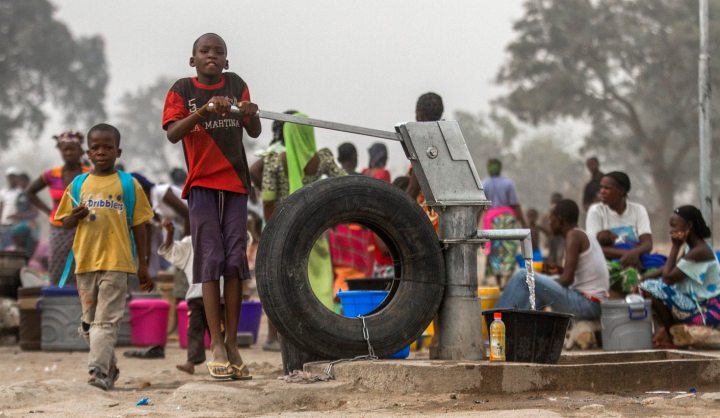Africa
Facing the elephant in the room: Nigeria’s bulging youth population

By mid-century Nigeria alone will account for almost one tenth of all births in the world. With massive economic and security challenges in a country largely run on generator power, how can Africa’s largest economy plan for its baby boom? By ENRIQUE DELAMÓNICA and MARYAM ABDU from UNICEF.
For the first time since independence, a historic event took place in Nigeria on 29 May 2015; there was a peaceful and democratic transfer of power to the opposition. This is cause for celebration. But it is sobering to think of all the daunting challenges faced by the new administration including a falling oil price and ongoing insecurity in the north-east. These are pressing and immediate issues. At the same time there is an underlying demographic transition taking place that is less visible but which will define the future well-being of the nation.
Just three of the recent projections from UNICEF’s report Generation 2030 |Africa could be highlighted here. Nigeria’s population is estimated to grow to over 270 million people by 2030 and over 440 million by 2050. It is expected children and adolescents will represent close to 60% of the population during this period. Moreover, two out of three Nigerians will live in an urban centre.
Without adequate planning and resource allocation to accommodate this population bulge, prospects for children born in Nigeria look grim. But these projections do not mean the future is cast in stone. They are meant to help guide policies and comprehend the opportunities and challenges facing Nigeria in order to avoid disaster. Four points are crucial in this endeavour.
Avoiding disaster
First, there is the promise of a demographic dividend. The rising proportion of youth and adult, who would be at the prime of their productive capacity, compared to children and the elderly who cannot engage in productive activities, implies the possibility of Nigeria experiencing an increase in per capita income growth. Although temporary, this increased rate of growth could last several years, even a couple of decades, thus contributing to a significant increase in the level of resources available to all Nigerians.
However, secondly, this demographic dividend is not foretold or automatic. Specific investments are needed to provide capacities for the rising number of youth so that they become productive workers and entrepreneurs. In addition, policies to promote productive employment in value-adding jobs and decent work are required. If absent, these two types of policies and interventions could lead to a demographic burden, rather than a dividend.
Third, this burden would take the form of increasing unemployment, poverty and disparity in income and well-being. These inequities and inequalities would occur between different ethno-linguistic groups, between the North and the South, between literate and illiterate families, between rural and urban areas, and within urban centres. Internal and external migration, conflict, preventable diseases and deaths, and large-scale destitution could ensue.
Investing in children
Fourth, and finally, the ways and means to avoid these problems are well known, tested and inexpensive. Many other countries in the world have been able to manage similar situations in the past. The key is investing in children. Providing for the nutrition, education, health, and minimum standard of living for all Nigerian children is within the means of the country. The interventions, ranging for instance from a package of minimum health interventions as defined in the current health policies or ensuring universal schooling for all boys and girls as currently legislated, are feasible and easy to implement.
When children, all children (including adolescents, in particular adolescent girls) are well-fed, healthy, knowledgeable and free from abuse and exploitation, they grow up to be full members of an inclusive society that will give them the opportunity to channel their energies and abilities to generate wealth for themselves and the rest of society – contributing to make the demographic dividend and a prosperous Nigeria a reality. DM
Photo: On 17 March 2015, (foreground) a boy pumps water at a handpump in a camp for people displaced by the Boko Haram conflict, in Yola, capital of the north-eastern state of Adamawa, which has been affected by the escalating Boko Haram insurgency. (Unicef)


















 Become an Insider
Become an Insider